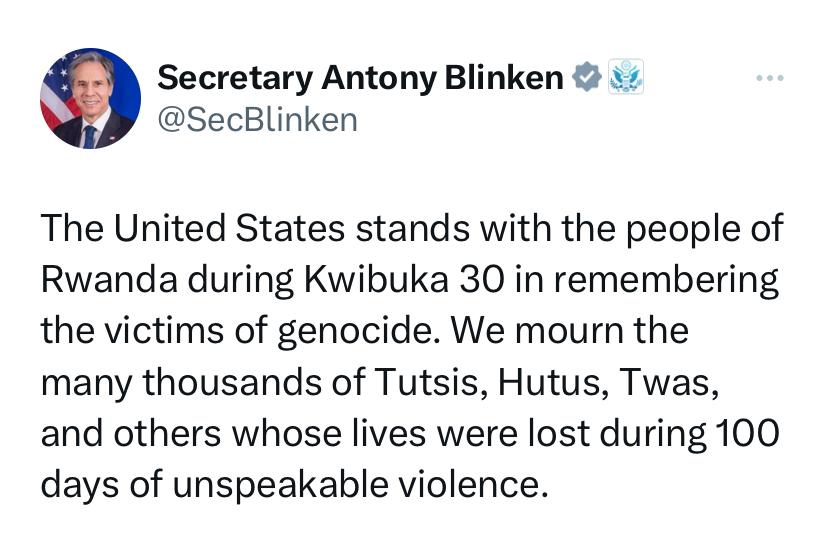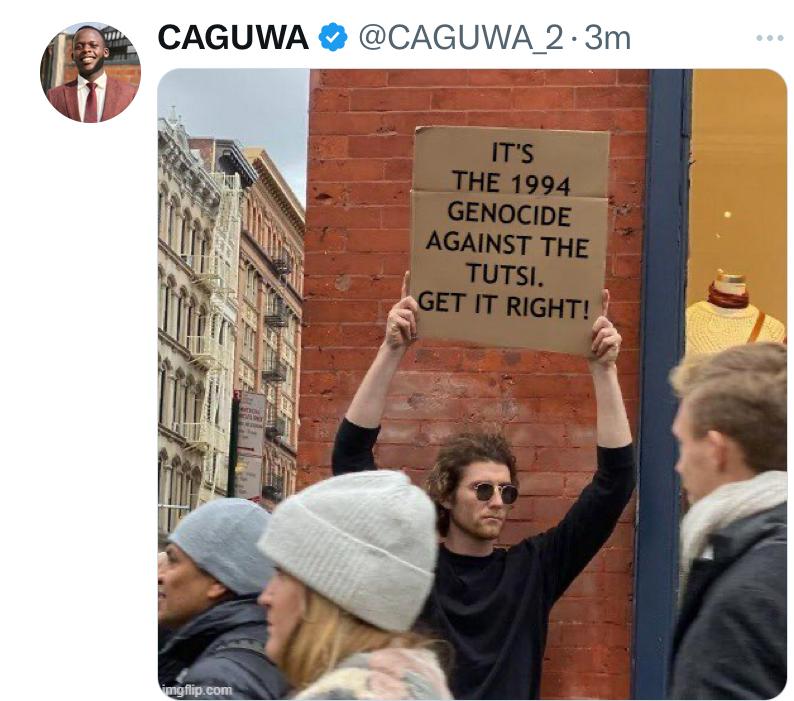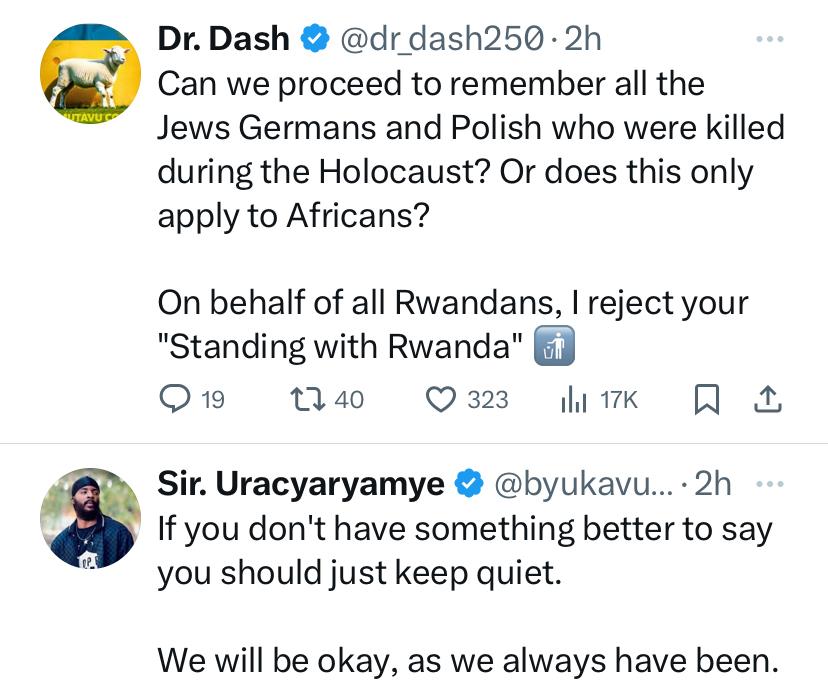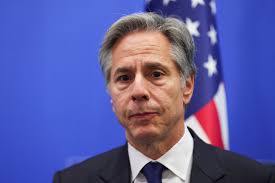
In the delicate arena of international diplomacy and historical remembrance, every word weighs heavily and carries the potential to either heal or harm. This is why Secretary Antony Blinken’s recent statement on the Genocide against the Tutsi in Rwanda, issued during the Kwibuka 30 remembrance, has not only caused a stir but also necessitates outright condemnation. By grouping Tutsis, Hutus, and Twas together as victims of the genocide, Secretary Blinken’s message dangerously veers towards a historical revisionism that dilutes the targeted nature of the 1994 atrocities.

It is a matter of recorded historical consensus that the genocide was orchestrated against the Tutsi population, a fact acknowledged by the Rwandan government, the United Nations, and the International Criminal Tribunal for Rwanda. The inclusion of Hutus and Twas in the victim count, without clarifying that these groups were not the targets of systematic extermination, plays into the hands of those who wish to deny the genocide’s intent and scope. Such mischaracterization betrays the memories of the survivors and descendants and undermines the education and prevention of future genocides.

This is not merely an issue of semantics; it is an issue of truth and justice. The language used by Secretary Blinken stands in opposition to the commitment to never forget and to educate future generations accurately about the horrors of genocides. When commemorating an event as grave and defining as the Genocide against the Tutsi, there is a moral imperative to maintain clarity and specificity. Equating the suffering of Tutsis with the broader political and social turmoil of the time period does a disservice to the distinct nature of the genocide and the systematic intent behind it.
We therefore call upon Secretary Antony Blinken and the U.S. State Department to issue a clarifying statement that corrects this significant misrepresentation. To uphold the sanctity of historical fact and the respect owed to victims of such calculated and heinous crimes, our public figures must lead with accuracy and sensitivity. It is through such leadership that we honor the past and fortify our resolve against the repetition of such tragedies in the future.

